Dressage represents the pinnacle of equestrian discipline, where horse and rider work in perfect harmony to perform intricate movements with precision and grace. Often described as "horse ballet," dressage demands years of dedicated training, exceptional athleticism, and unwavering mental focus from both partners (3). However, beneath the elegant surface of piaffe, passage, and pirouettes lies a significant challenge that affects many competitive dressage horses: digestive issues. Understanding these problems and implementing effective solutions like EquiNectar is essential for maintaining both the health and performance capabilities of these remarkable athletes.
The Unique Pressures Facing Dressage Horses
Dressage horses face a distinctive combination of physical and psychological demands that significantly impact their digestive systems. Unlike horses in other disciplines, dressage athletes must maintain extreme collection and balance for extended periods, requiring intense core engagement and precise muscular control (3). The training scale developed by the German National Equestrian Foundation progresses through six interconnected levels—rhythm and regularity, relaxation, contact, impulsion, straightness, and collection—each building upon the previous foundation (3). This systematic approach, while essential for developing the horse's natural athletic ability, creates considerable physical and mental stress.
The rigorous training schedule required for competitive success places enormous strain on the equine digestive system. Grand Prix horses perform demanding movements including piaffe (an elevated trot in place), passage (a highly collected, suspended trot), flying changes in sequence, and pirouettes—all requiring peak physical condition and mental concentration (3). This constant demand for athletic excellence activates the sympathetic nervous system, which suppresses normal digestive function, leading to reduced gut motility and compromised nutrient absorption.
Common Digestive Complications in Dressage Horses
Gas colic represents one of the most serious digestive issues affecting dressage horses. The combination of high-concentrate diets necessary to fuel intensive training, limited turnout time common in competitive yards, and the physiological stress of demanding work creates conditions conducive to abnormal fermentation in the hindgut. When horses cannot adequately break down their feed in the foregut, undigested material—particularly starches and sugars—passes into the hindgut where bacterial fermentation produces excessive gas. This accumulation can cause severe abdominal discomfort, pain, and in critical cases, life-threatening colic episodes requiring emergency veterinary intervention.
EquiNectar directly addresses this colic risk through its comprehensive enzyme profile. The amylase in EquiNectar helps digest starches in the foregut before they can reach the hindgut and cause problematic fermentation (1). By ensuring proper starch digestion early in the digestive process, EquiNectar supports healthy digestion and helps prevent gas colic by promoting efficient nutrient absorption and a balanced gut environment (1).
Hindgut disturbances often remain unrecognized in dressage horses because symptoms can be subtle and easily misattributed to training challenges or temperament issues. Horses experiencing hindgut discomfort frequently exhibit behavioral changes during work, including resistance to the bit, tail swishing, reluctance to engage the hindquarters properly, pinned ears, or general irritability and tension (2). These signs are commonly misinterpreted as training problems or disobedience when they actually stem from genuine digestive distress.
The hindgut relies on a delicate balance of beneficial microorganisms to ferment fibrous material and produce essential nutrients. EquiNectar promotes a healthy gut microbiome by supporting beneficial gut bacteria, enhancing digestion and immunity, while reducing harmful microbes (1). This balanced microbial ecosystem is crucial for dressage horses, as it directly impacts their comfort, behavior, and ability to focus during demanding training sessions.
The Challenge of Nutrient Absorption
Compromised nutrient absorption represents a substantial challenge for competitive dressage horses. These athletes require optimal nutrition to support their intense muscular work, maintain ideal body condition, and sustain energy levels throughout demanding training sessions and competitions. However, when the digestive system isn't functioning efficiently, even the highest quality feeds may fail to provide adequate nutritional value.
EquiNectar revolutionizes nutrient absorption through its complete spectrum of digestive enzymes. By breaking down feeds and forage more effectively, EquiNectar ensures horses get the most from their diet, leading to better overall health (1). The supplement contains:
- Amylase to digest starch from concentrate feeds
- Fructanase to digest fructans from grass and hay—a particularly valuable enzyme for managing the complex sugars that often cause digestive upset
- Cellulase to digest cellulose from plant cell walls
- Xylanase to digest xylans from plant material
- Beta-glucanase to digest beta-glucans from plant material
- Phytase to break down phytic acid, allowing better mineral absorption—crucial for maintaining bone density and muscle function
- Protease to digest proteins, supporting muscle development and repair
- Lipase to digest fats, providing concentrated energy sources (1)
This comprehensive enzymatic support means dressage horses can extract maximum nutritional value from their feed, often allowing owners to maintain excellent condition and performance while potentially reducing concentrate rations.

The Feed Management Dilemma
Typical management practices for competitive dressage horses can inadvertently contribute to digestive complications. Many high-level horses receive concentrate-rich diets to meet their substantial energy requirements, but these grain-based feeds can overwhelm the digestive system's natural processing capacity. Limited turnout time further compounds digestive issues, as horses don't receive the steady flow of fibrous material needed for optimal gut function.
Modern grass varieties often contain elevated levels of fructans - complex sugars that can be difficult for horses to digest completely. EquiNectar's fructanase enzyme specifically addresses this challenge, breaking down these problematic compounds before they can cause hindgut fermentation and discomfort (1). Similarly, hay quality varies considerably, with some types containing plant materials that horses struggle to break down efficiently. The cellulase, xylanase, and beta-glucanase enzymes in EquiNectar work together to maximize forage digestibility, ensuring horses extract optimal nutrition from their hay (1).
How EquiNectar Transforms Digestive Health
EquiNectar is made from malted barley using ancient, artisan barley varieties that have been cherished in Europe for over 800 years for their high levels of natural enzymes. It is produced using a patented process that preserves these valuable enzymes (1). This traditional yet scientifically advanced approach provides horses with a natural, comprehensive digestive support system.
Each serving of EquiNectar delivers far more than just enzymes. The supplement provides an excellent source of B vitamins, including thiamine (B1), riboflavin (B2), niacin (B3), pyridoxine (B6), folate (B9), and vitamin B12—all crucial for energy metabolism, nervous system function, protein metabolism, red blood cell formation, DNA synthesis, and cell division (1). These vitamins are essential for dressage horses, supporting the neurological coordination and cellular energy production required for precise, demanding movements.
EquiNectar is also rich in various phenolic compounds with potent antioxidant properties. These include ferulic acid (a potent antioxidant with anti-inflammatory effects), flavan-3-ols (including catechins and epicatechins), and other phenolic acids such as vanillic acid, p-coumaric acid, and syringic acid (1). These antioxidants help combat the oxidative stress generated by intense athletic work, supporting recovery and protecting cells from damage.
The supplement provides key minerals including magnesium (important for muscle and nerve function, as well as bone health), potassium (crucial for heart function, fluid balance, and muscle contractions), selenium (an antioxidant mineral supporting immune function), zinc (important for immune function, wound healing, and DNA synthesis), and iron (essential for oxygen transport in the blood and energy production) (1). For dressage horses performing complex movements that demand precise muscle control and sustained energy, these minerals are fundamental to performance.

Prevention of Colic and Enhanced Comfort
EquiNectar takes a proactive approach to colic prevention rather than reactive crisis management. By promoting efficient nutrient breakdown and absorption in the foregut, the supplement prevents the accumulation of undigested material in the hindgut that leads to gas colic (1). This preventive strategy proves far more effective—and less stressful for both horse and rider—than addressing acute colic symptoms after they develop.
When digestive discomfort is alleviated, dressage horses display remarkable behavioral improvements. Less digestive discomfort means a happier, more relaxed horse (1). British Dressage's welfare guidelines emphasize that "good horse management and training must be compatible with good horse management and must not compromise welfare," noting that practices causing physical or mental suffering will not be tolerated (2). Horses experiencing optimal digestive health become more willing, focused partners, demonstrating improved concentration during training and greater consistency in competitive performance. The behavioral issues often attributed to temperament or training gaps may actually resolve when underlying digestive health is optimized.
Enhanced Performance Through Optimal Digestion
The performance benefits of EquiNectar extend throughout every aspect of the dressage horse's athletic life. Optimal digestion contributes to higher energy levels and improved performance in athletic horses (1). When horses efficiently convert their feed into usable energy, they possess the stamina and power required for demanding Grand Prix movements, extended training sessions, and the rigors of competition travel.
EquiNectar supports not just immediate performance but long-term athletic sustainability. Regular use promotes overall quality of life, supporting longevity and long-term gut health (1). This long-term wellness approach aligns with modern understanding of equine welfare, which recognizes that subtle signs of discomfort—including behavioral changes, reluctance to work, and inconsistent performance—may indicate underlying health issues requiring attention (2).
The supplement's comprehensive nutritional profile ensures horses have the building blocks they need for every physiological system. The B vitamins support energy metabolism and nervous system function—critical for the precision and coordination required in dressage. The antioxidants protect against exercise-induced cellular damage and inflammation. The minerals support muscle contraction, nerve transmission, immune function, and oxygen delivery to working muscles. Together, these nutrients create an optimal internal environment for athletic excellence.
Professional Recognition and Military Trust
The effectiveness and reliability of EquiNectar has earned recognition from equine professionals at the highest levels worldwide. The supplement is recommended by veterinarians and has received approval from IVC Evidensia, the world's largest veterinary group—a significant endorsement reflecting rigorous scientific evaluation (1). This veterinary backing provides horse owners with confidence that EquiNectar meets professional standards for safety and efficacy.
Perhaps most impressive is the trust placed in EquiNectar by military equestrian programs. The supplement is used by all horse regiments of the British Army, including the world-famous Household Cavalry and the Royal Army Veterinary Corps (1). These organizations demand the highest standards of horse care and performance, as their horses must maintain peak condition while performing ceremonial duties and representing their nation. Their choice of EquiNectar represents a powerful testament to the product's reliability, efficacy, and suitability for horses performing at elite levels under demanding conditions.
This military and veterinary endorsement aligns with British Dressage's emphasis on evidence-based horse care and the welfare principle that "horses must only undergo training that matches their physical capabilities and level of maturity" (2). By supporting fundamental digestive health, EquiNectar enables horses to better cope with the physical demands of training and competition, ensuring their capabilities match the work asked of them.
Implementing EquiNectar in Your Training Program
For dressage horses facing the multiple digestive challenges outlined above, EquiNectar offers a straightforward, comprehensive solution. The supplement integrates easily into existing feeding programs, providing daily digestive support that works continuously to optimize nutrient breakdown, support beneficial gut bacteria, and prevent digestive discomfort.
The natural formulation, derived from malted barley through a patented process that preserves enzymatic activity, provides nutritional support without relying on synthetic additives or harsh chemicals (1). This gentle yet effective approach supports the body's natural digestive processes rather than overwhelming or disrupting them, making it suitable for long-term daily use in horses of all ages and competitive levels.
By addressing digestive health proactively, EquiNectar helps prevent the cumulative stress that chronic digestive discomfort places on the horse's system. This preventive approach supports not just digestive wellness but overall welfare, allowing horses to focus their energy on training and performance rather than managing internal discomfort.
Conclusion
Dressage horses face unique and significant digestive challenges stemming from their intensive training demands, typical management practices, and specialized dietary requirements. The combination of physical stress from collected work, mental pressure from precision training, concentrate-rich diets, limited turnout, and competition demands creates substantial risk for digestive dysfunction. These challenges manifest as gas colic, hindgut disturbances, behavioral issues, and compromised nutrient absorption—all of which directly impact the horse's welfare, comfort, and competitive performance.
EquiNectar provides a comprehensive, scientifically formulated solution to these complex digestive challenges. Through its unique combination of naturally occurring digestive enzymes, essential B vitamins, powerful antioxidants, and key minerals, EquiNectar supports optimal digestive function at every level. The supplement helps prevent gas colic, promotes beneficial gut bacteria, enhances nutrient absorption, supports athletic performance, and contributes to long-term wellness and longevity (1).
Trusted by veterinarians, approved by the world's largest veterinary group, and used by all British Army horse regiments including the prestigious Household Cavalry, EquiNectar has proven its worth at the highest levels of equestrian performance (1). For dressage horses and their dedicated riders and trainers, EquiNectar offers the digestive support necessary to achieve optimal health, sustained comfort, and peak performance capacity. As the equestrian community continues prioritizing welfare alongside performance, addressing fundamental health needs like digestive function becomes not just beneficial but essential for the future of the sport and the horses at its heart.
Don't let digestive issues hold your dressage horse back. Take action today with EquiNectar.
References
- EquiNectar USA. (n.d.). EquiNectar: Don't let digestive issues hold your horse back. https://equinectarusa.com
- British Dressage. (2021). Equine welfare. https://www.britishdressage.co.uk/about/equine-welfare
- Wikipedia contributors. (2025, June 10). Dressage. In Wikipedia, The Free Encyclopedia. https://en.wikipedia.org/wiki/Dressage


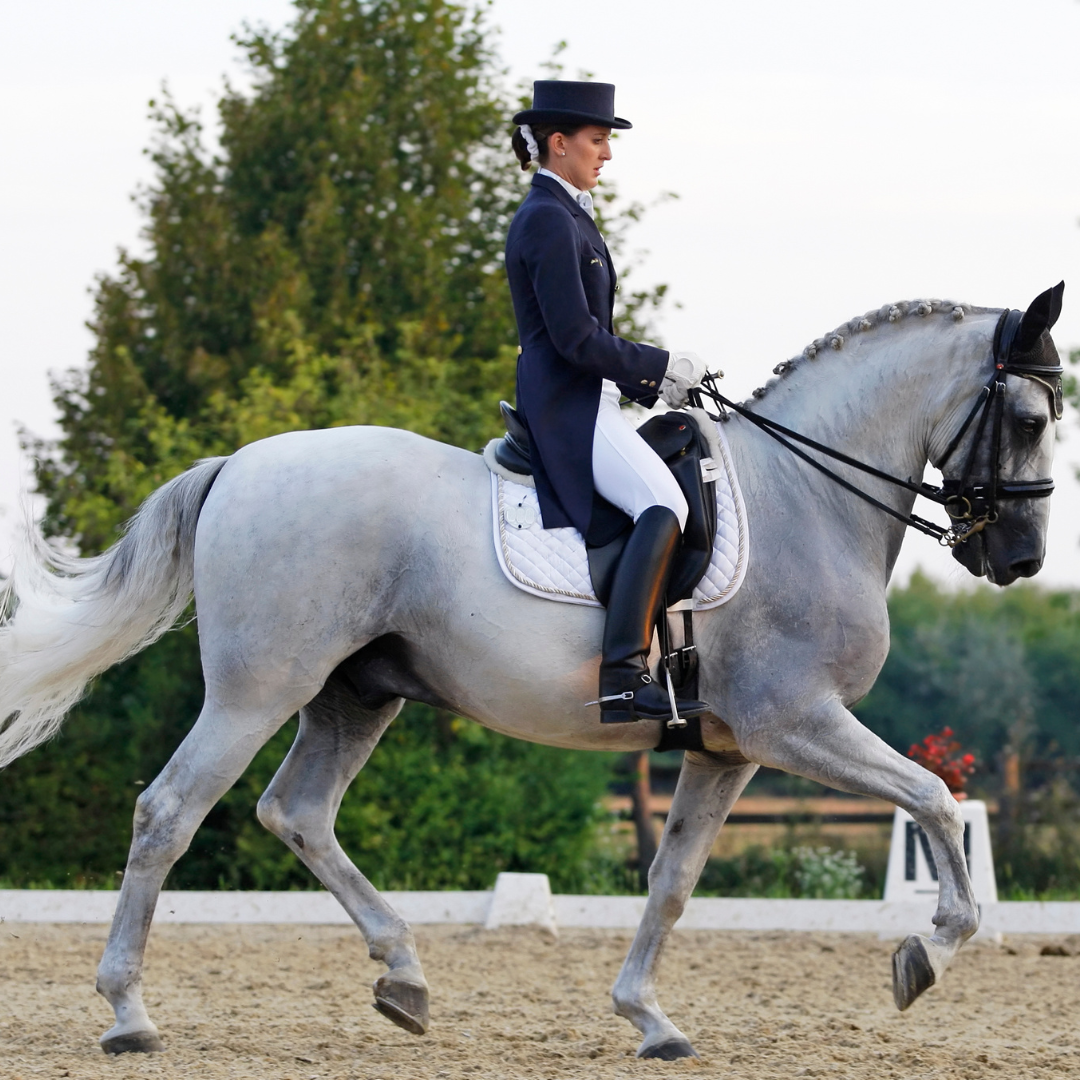
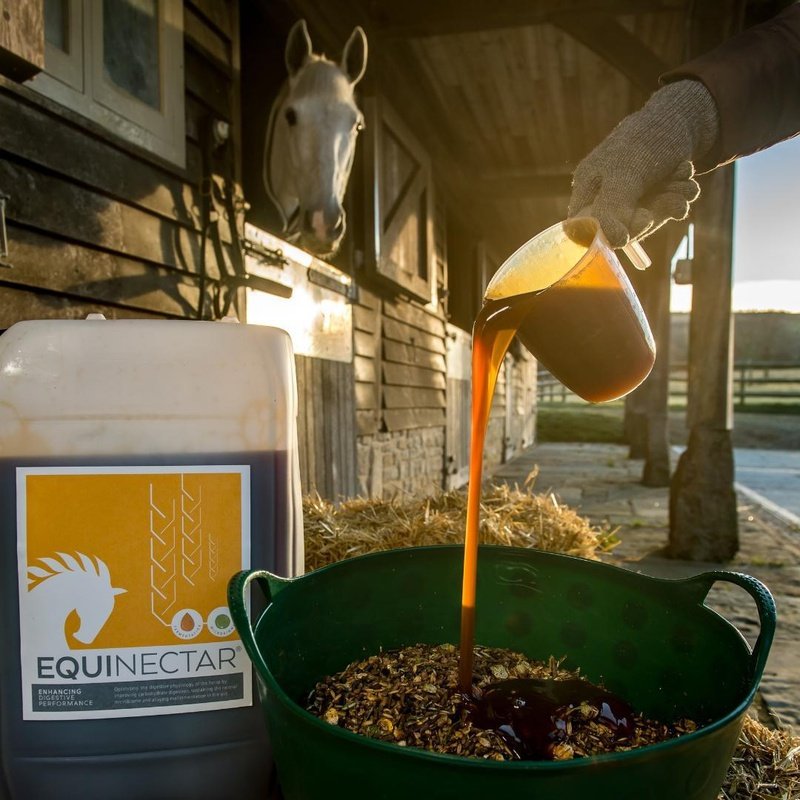
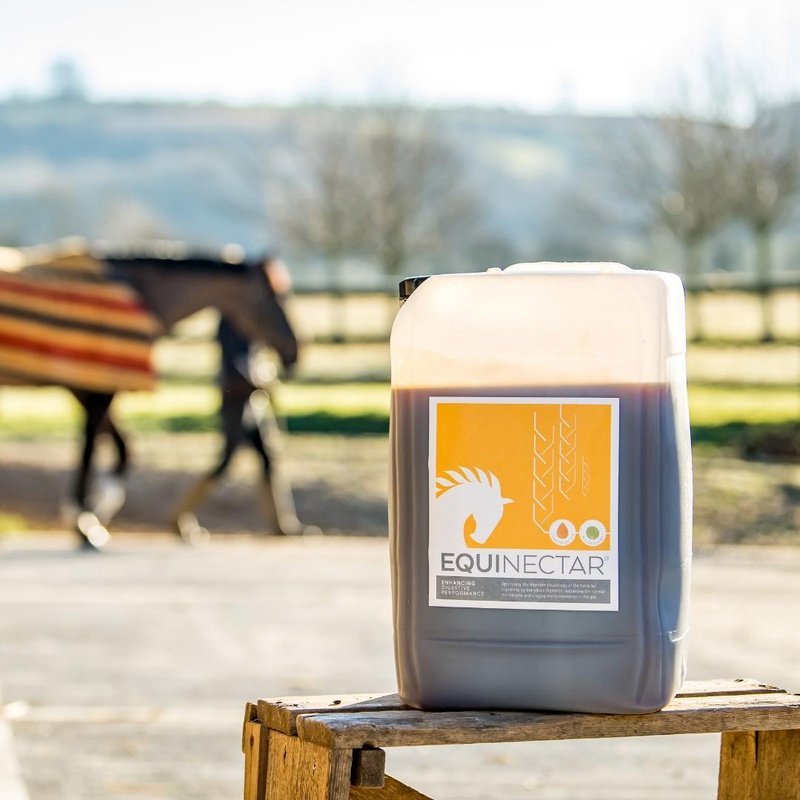
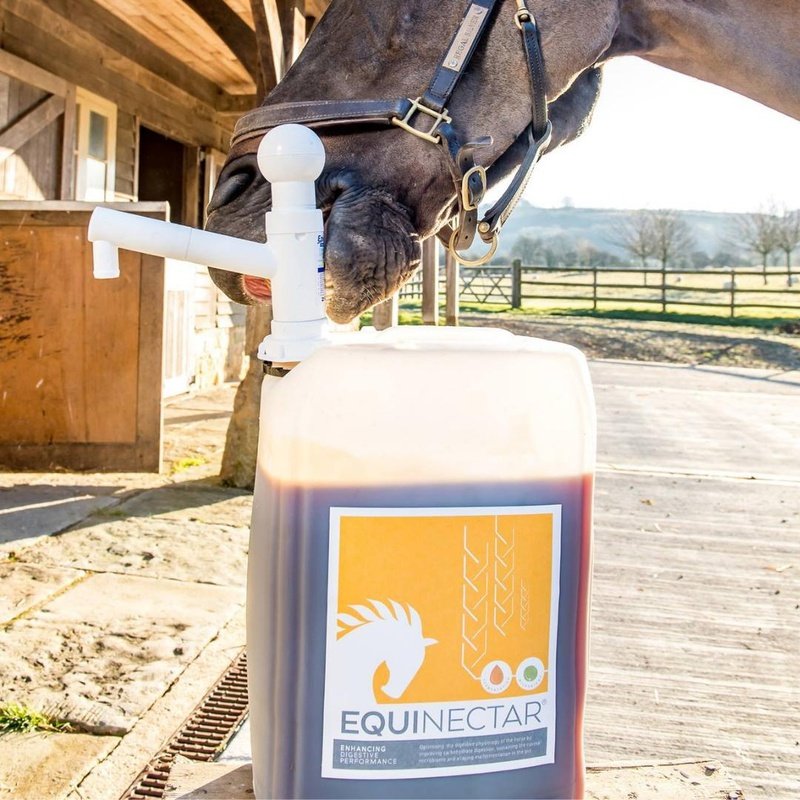
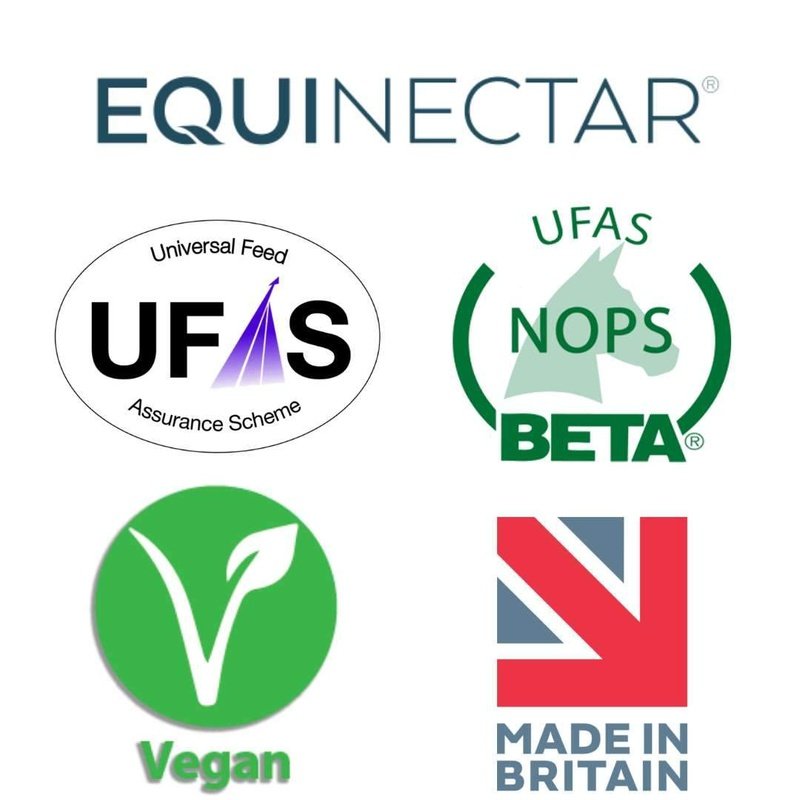
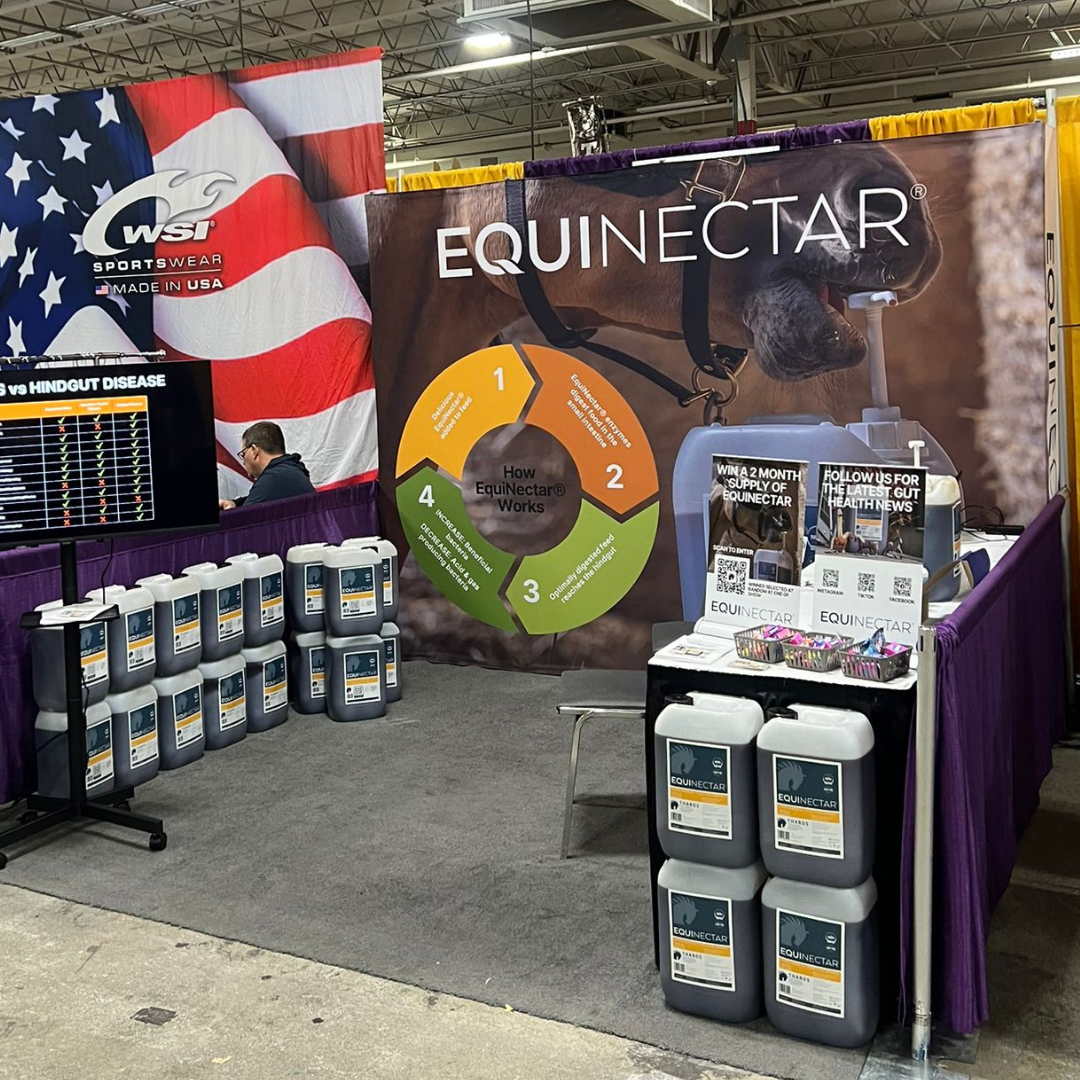

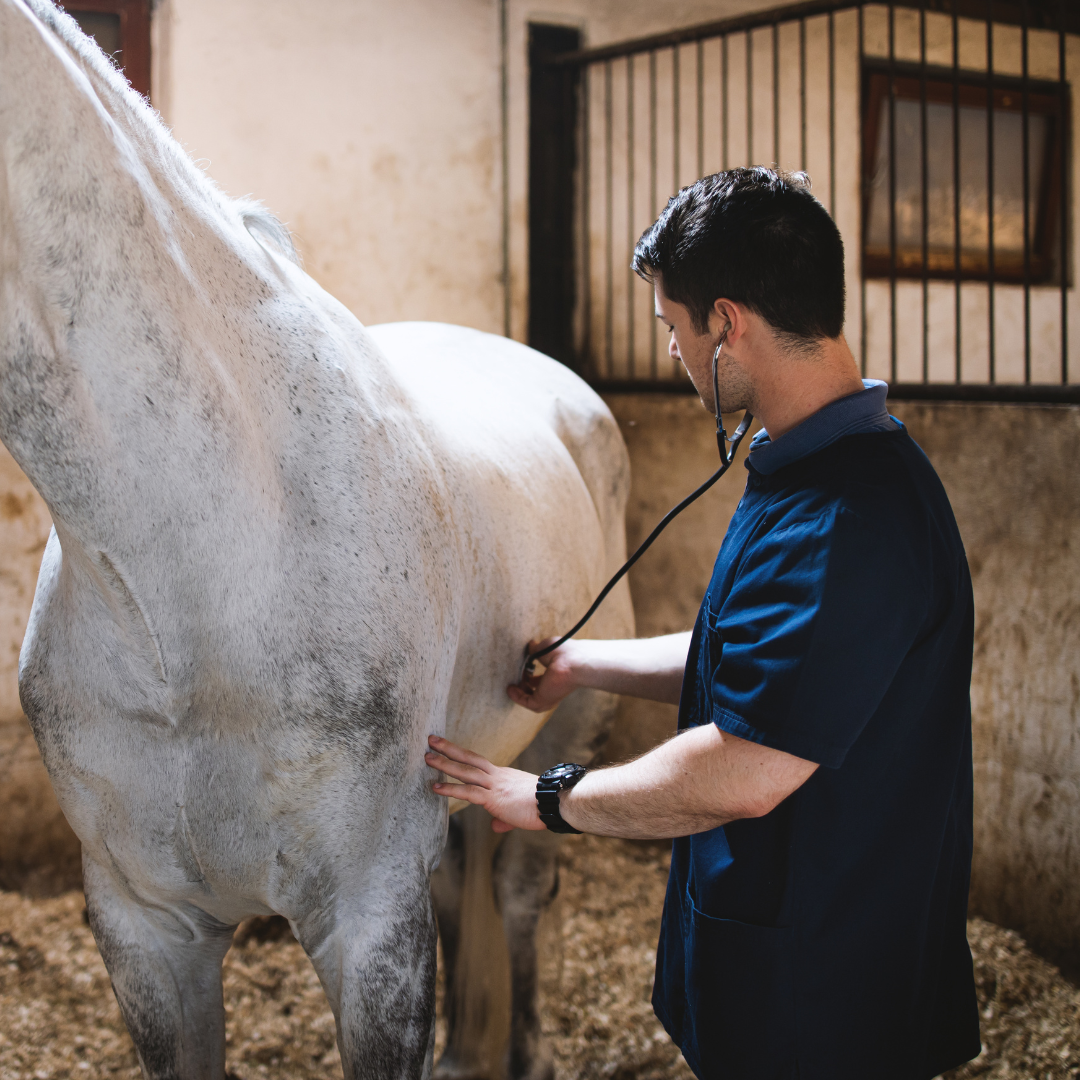
Share: